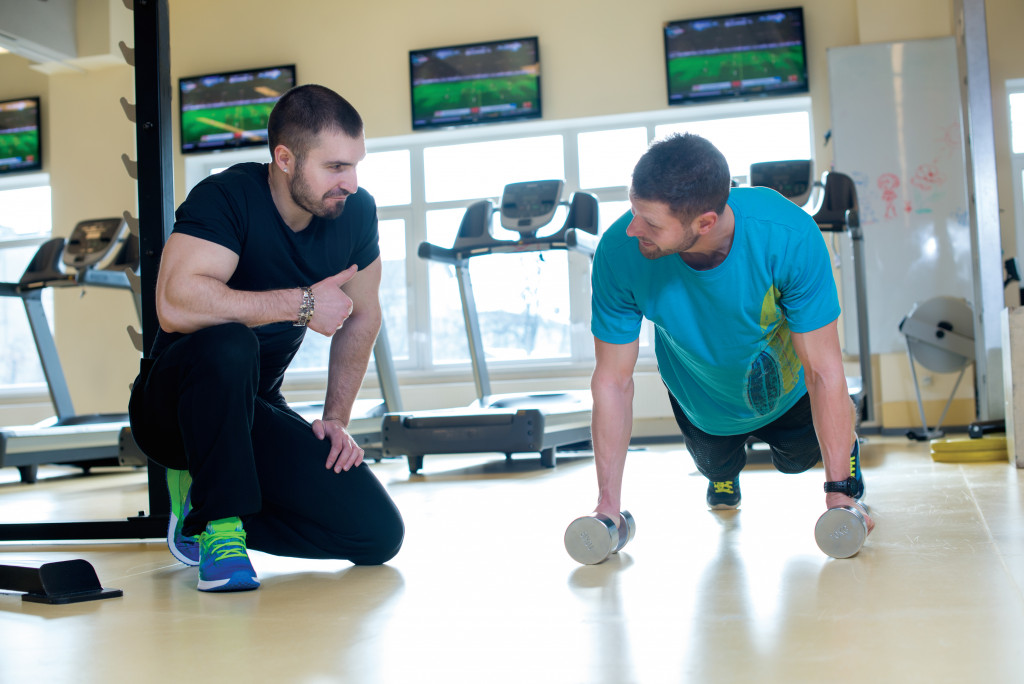- A career as an athlete trainer requires education, an understanding of anatomy and physiology, and injury prevention knowledge.
- Practical experience with athletes across different competition levels and strong interpersonal skills are essential.
- The ability to stay calm under pressure, pay attention to detail, and work in various environments is crucial.
- Securing personal training insurance is critical to protecting yourself and your career from potential liabilities.
Athletes are often celebrated for their physical prowess and sporting abilities, but they don’t usually get there on their own. Behind every successful football team, for example, are the coaches and trainers who work just as hard to ensure that each player is fit, healthy, and ready to take the field. If you’re passionate about sports and want to make a difference in athletes’ lives, becoming an athlete trainer might be the perfect career for you. However, before you dive in, here are a few things to consider.
Education and Qualifications
To become an athlete trainer, you’ll typically need to have at least a Bachelor’s degree in athletic training or a related field. Other associated fields may include sports medicine, physical therapy, or exercise science. Most programs require that you complete a minimum number of clinical hours before graduation to gain practical experience. You’ll likely also need to become certified in your state by passing the Board of Certification Exam. Here are other things that you may need to become an athlete trainer:
Strong Understanding of Anatomy and Physiology
A robust grasp of both anatomy and physiology is crucial for an athletic trainer. This knowledge allows trainers to understand the structure and functions of the human body and how injuries can affect these areas. It’s vital for diagnosing injuries, developing effective rehabilitation plans, and educating athletes on how to avoid future injuries.
Knowledge of Injury Prevention and Rehabilitation Techniques
As an athletic trainer, your primary responsibility will be to prevent, recognize, and respond to sports-related injuries. This requires a thorough understanding of various injury prevention methods, such as correct training techniques, proper equipment use, and body mechanics. It also involves knowledge of rehabilitation techniques to ensure athletes return to their peak performance after an injury.
Experience Working With Athletes at All Levels
Practical experience working with athletes at different levels of competition, from high school sports to professional leagues, is invaluable as an athletic trainer. Each group brings unique challenges and learning opportunities, helping you to understand the varying needs and pressures faced by athletes. This experience can come through internships, job shadowing, or even volunteer work at local sports teams or events.

Work Environment
Athlete trainers can work in a variety of settings, including high school and college athletic programs, professional sports teams, or even rehabilitation centers. You’ll want to consider your preferred work environment and how you’ll likely be working with athletes. If you work in a team environment, for example, you’ll need to be able to work with a variety of personalities and be comfortable taking charge in high-pressure situations. Here are some skills that you need:
Strong Interpersonal Skills
Athlete trainers work closely with athletes, coaches, and other healthcare professionals. Strong interpersonal skills are essential to communicate effectively, build relationships, and collaborate with others in a team setting. You’ll need to be able to provide clear instructions, listen attentively, and act compassionately when working with athletes who may be in pain or struggling.
Ability to Remain Calm Under Pressure
Sports can be intense, and injuries can happen at any moment. As an athletic trainer, you’ll need to remain calm under pressure and make quick decisions in high-stress situations. Whether it’s treating an injured athlete on the field or making critical calls during a game, your ability to stay composed and focused will be crucial.
Attention to Detail
Athlete trainers need to pay close attention to details, from a player’s previous injuries to equipment maintenance. This is especially important for preventing future injuries and ensuring athletes are in top condition. You’ll need to keep thorough records, monitor progress, and constantly assess if any adjustments need to be made.

Get Insurance
As an athletic trainer, it’s essential to protect yourself and your career with comprehensive personal training insurance. This coverage can safeguard against potential liabilities, including lawsuits or claims related to sports injuries that may occur under your watch.
It’s not just a precautionary measure but a professional responsibility that comes with the territory of being an athletic trainer. Getting insured provides you the peace of mind to focus on what matters most – helping athletes perform at their best.
In most cases, organizations that employ athletic trainers will already have insurance coverage for their team, but it’s always a good idea to have your own as an added layer of protection. It also allows you to take on freelance work or start your own practice if desired.
Becoming an athlete trainer can be a rewarding career path for anyone who’s passionate about sports and helping others achieve their goals. However, it’s important to consider education and qualifications, specialization, work environment, networking and connections, and additional skills before diving in. By taking these factors into account, you can set yourself up for success and build a fulfilling career as an athlete trainer.

